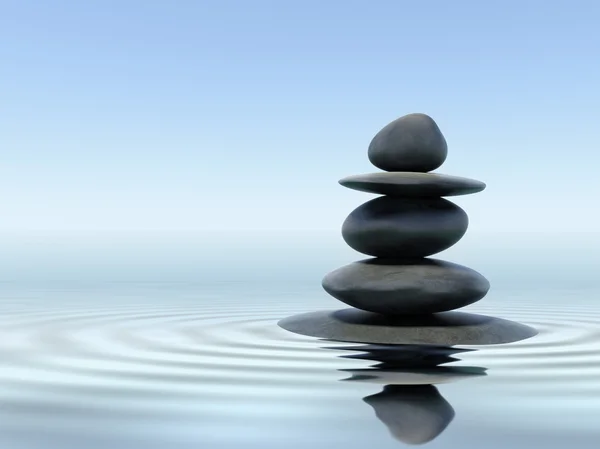Sometimes lately, when I enter my apartment, I can’t help noticing how good it feels to be home. I’ve lived here for 18 years, so why this flush of pleasure now? I wondered until I identified the feeling: contentment.
That got me thinking about how contentment is different from happiness, which is more intense but fleeting—often triggered by getting what you want. Contentment is about wanting what you already have and feeling good about it—the way I feel when I walk through my front door.
In hard-driving, competitive societies like ours, the quest for contentment hardly exists, but researchers report that finding contentment gets easier with age. What’s more, it’s possible to cultivate that quiet sense of well-being and feel content more often.
Studies show that contented people tend to be healthier—though it’s possible that the reverse is true, and healthy people are more likely to feel contented. Or that both things are true and form a kind of beneficial feedback loop: being healthy promotes contentment, which makes you healthier, which keeps you content, and so on.
Why is contentment easier to come by in later life? The Harvard Study of Adult Development, which has been following some of its subjects for more than 80 years, found that with age, many people are better able to slough off small worries and focus on what’s important to them—and what makes them happy. My own guess is that, post-retirement, many people also feel less stressed. The ambitions that drove them earlier in life no longer do, and they care less about what others think of them.
An article by psychologist Jessica Koehler, PhD, summarizes ways to cultivate contentment. Of course, it’s hard to feel content if you’re trapped by poverty or a chronic illness, but some of her suggestions are quite simple. When big things are going wrong, it can help to focus on little things that are still going right.
In fact, a number of Koehler’s tips are about what you pay attention to, and to my surprise, she mentions several things I already do. (I haven’t listed all her tips here, and I’ve expanded on many from my own experience.)
Practice thankfulness. Start each day by thinking about three things, big or small, that you’re grateful for. Dwell on them a bit. When I remember to do this, it usually puts my worries in perspective. Koehler also suggests keeping a gratitude journal.
Practice mindfulness. You’re being mindful when you’re fully present in the moment: aware of your body, your surroundings and your thoughts, but you let those thoughts drift by without judging them.
An ordinary day offers many chances to pause, focus mindfully on the present moment and appreciate small pleasures.
For instance, while I take the first few bites of breakfast, I close my eyes and concentrate entirely on the taste and texture of what I’m eating. Until I read Koehler’s article, I didn’t know this was a form of mindfulness—it was just something I liked doing because usually at meals, I’m too busy thinking about other things to appreciate anything less attention-getting than chocolate.
Mundane tasks can provide another opportunity. For example, as you fold laundry, still warm from the dryer, pay attention to how it feels and smells as you smooth the fabric.
Connect with nature—something else I already do just because it feels good. Sit down somewhere quiet, close your eyes and soak up the sunlight. Notice the breeze ruffling your hair, the birds chirping nearby, the smell of freshly cut grass. Drink in some long, deep breaths.
Celebrate small achievements. Congratulate yourself when you remember things that are easy to forget, like where you left your car in a crowded parking lot. Small tasks, long delayed, like sorting out a cluttered drawer, can also provide a lift, if you let them.
Be kind to yourself. Forgive yourself for past mistakes. Listen to what you’re thinking and the next time you scold yourself or question your own abilities, notice what you’re doing and stop.
Focus on your relationships. Close, warm relationships probably contribute most to contentment in later life. Meaningful conversations with friends and family can feel especially good—the times when you get to talk openly and honestly about what matters to you and to them.
Listen actively. You’re doing that when you focus all your attention on what another person is saying. You ignore distractions and resist the temptation to think about how to respond or whether you agree or disagree. Just listen. This isn’t easy to do, but if you’ve ever had 100 percent of someone else’s attention, you know how good that feels—usually to both people.
Thank others. In particular, express thanks for the things they do for you that both of you take for granted. That’s good for your relationship and it’s also a reminder of how much you have to be grateful for.
Be generous to others. You’ll feel good about yourself afterward and earn a little nudge of contentment.
Develop new skills. Try something creative and intensive, like painting, writing or playing a musical instrument. As you learn, appreciate each gradual improvement.
Laugh at yourself. As you age, lots of little things go wrong. Finding them funny can make them more tolerable. I’m still chuckling over the morning I forgot to put a mug under the spout of the coffee maker. I failed to notice the puddle of coffee spreading across the counter because I was busy describing to my daughter the last time I forgot the mug.
Finally, one last way to nurture contentment is to notice when you’re feeling content and pause to enjoy that thrum of quiet satisfaction.
Does this explain why coming home often feels so good to me? Have I pursued contentment and caught it?
I doubt if anyone can do that. Contentment comes and goes—certainly, mine does—but it comes more often than it used to. And it’s definitely worth pursuing.

Flora Davis has written scores of magazine articles and is the author of five nonfiction books, including the award-winning Moving the Mountain: The Women’s Movement in America Since 1960 (1991, 1999). She currently lives in a retirement community and continues to work as a writer.



